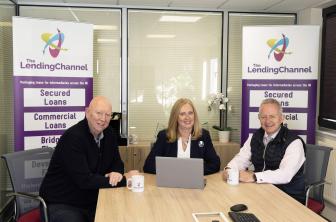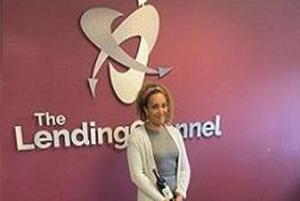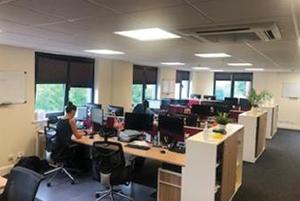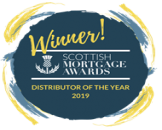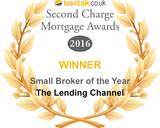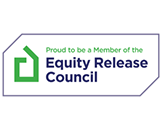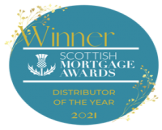Pros and Cons of Commercial Mortgages: A Balanced View
One of the most common decisions you'll face in the business world involves the pursuit of a commercial mortgage. This choice, while offering a pathway to potentially substantial rewards, also comes with its own set of challenges and risks–just like any other big decisions you’ve made.
And as a business owner or financial decision-maker, understanding the full spectrum of implications associated with commercial mortgages is essential.
At The Lending Channel, we believe in empowering our clients with a balanced and comprehensive view.
In this blog, we’ll help you get around the world of commercial mortgages, exploring both their advantages and disadvantages, and equipping you with the knowledge to make an informed decision that aligns with your business's financial strategy. Let’s get started!
Balancing the scales of commercial mortgages
For businesses aiming for asset growth, the journey often leads to commercial mortgages. These are key for those looking to own property and expand their business. Think of these mortgages as they're gateways to building your business's assets and a chance to get in on the ground floor of property appreciation.
But let's be real, deciding on a commercial mortgage isn't a walk in the park. It's a huge decision, filled with its own set of perks and pitfalls. We're talking about the potential to grow your equity and the stability of owning your space, versus the reality of upfront costs and the nitty-gritty of managing a property.
So, how do you know if your business needs a commercial mortgage? It's all about looking at the big picture. Does the idea of long-term financial gain align with the upfront investment? Can your business juggle property management while keeping its eye on the primary business goals?
Here’s where we get into the details — interest rates, loan terms, repayment plans, and how they fit with your business's financial outlook and current situation. It's not just asking if a commercial mortgage is good in general, but if it's the right fit for your business right now.
In short, choosing a commercial mortgage isn’t just about ticking off benefits. It's a thoughtful, strategic decision that involves understanding how this financial step weaves into the larger fabric of your business plans and aspirations. Let's dive in and see how this decision can shape the future of your business.
%20TLC%20Infographics.png)
Advantages of commercial mortgages
- Equity building: One of the most tangible benefits of a commercial mortgage is the ability to build equity. With each mortgage payment, a portion goes towards the principal amount, gradually increasing your business's equity in the property. This process not only contributes to your asset base but also enhances your borrowing power in the future.
- Potential for rental income: Owning commercial property opens up opportunities for generating rental income. If you lease out a part of your property, it can become a steady source of revenue, potentially covering some or all of your mortgage payments and operational costs, thus contributing positively to your cash flow.
- Tax benefits: The interest component of your commercial mortgage payments is often tax-deductible. This deduction can significantly reduce your taxable income, leading to substantial savings, especially in the initial years of the mortgage when the interest proportion is higher.
- Stability: Unlike renting, where lease costs can fluctuate and spike, fixed-rate commercial mortgages offer the predictability of stable payments. This stability aids in financial planning and budgeting, allowing businesses to allocate resources more efficiently.
Disadvantages of commercial mortgages
- Initial costs: The upfront costs of acquiring a commercial mortgage, such as down payments and closing costs, can be steep. These expenses require significant capital outlay, which might be challenging for some businesses to manage.
- Interest rate risk: For variable-rate mortgages, there's a risk of interest rates increasing over time. This can lead to higher repayment amounts, affecting your cash flow and financial planning.
- Maintenance responsibilities: Owning a property means taking on the responsibilities of maintenance and management. These tasks not only incur additional costs but also require time and resources that could otherwise be focused on core business activities.
- Property depreciation: While real estate often appreciates over time, there are instances and markets where property values can depreciate. This risk can affect the asset's value on your balance sheet and potentially impact resale value.
With that being said, while commercial mortgages present significant advantages like equity building and potential rental income, they also come with challenges such as initial costs and maintenance responsibilities. Understanding these factors is crucial for businesses to make informed decisions about property financing.
Weighing your mortgage options
When it comes to selecting the most suitable commercial mortgage, it's not just about finding a lender. It's a strategic decision that should align closely with your business's future ambitions and current financial standing.
Here's a deeper look into what this involves:
- Aligning with long-term business goals: Your choice of mortgage should be a stepping stone towards achieving your long-term objectives. For instance, if your goal is to expand your business operations, the property and the mortgage terms should facilitate this growth. If the aim is to have a steady income stream through rental, ensure the property's potential and the loan's structure support this.
- Understanding loan terms: The length of the loan, the type of interest rate (fixed or variable), and the repayment schedule all play a crucial role in your financial planning. A longer-term loan might offer lower monthly payments but could result in higher total interest over time. Conversely, shorter-term loans typically have higher monthly payments but accrue less interest overall.
- Interest rate considerations: Interest rates directly affect the cost of borrowing. Fixed rates offer predictability, which is excellent for budgeting, but might be higher initially than variable rates. Variable rates, while potentially lower at the outset, can fluctuate, which adds an element of uncertainty. Your business’s ability to handle potential rate increases is an important consideration.
- Evaluating financial health: Assess your business's current financial health, including cash flow, debts, assets, and creditworthiness. This assessment will not only affect your eligibility for certain mortgage products but also your ability to comfortably manage repayments without straining your business finances.
- Managing property-related responsibilities: Owning a commercial property comes with its set of responsibilities, including maintenance, upgrades, and compliance with regulations. Consider whether you have the resources and time to manage these aspects or if you'll need to hire additional help, which would be an added cost.
- Seeking professional advice: For complex mortgages, consulting with financial advisors or qualified mortgage brokers can provide valuable insights. They can help you understand the nuances of different mortgage products and how they align with your specific business needs.
In essence, weighing your mortgage options is about finding the right balance between what your business needs and what it can realistically manage. It's a process that requires careful consideration, thorough analysis, and sometimes, a bit of expert guidance to ensure you make the choice that best fits your business’s trajectory.
How to mitigate risks and maximise benefits
Now that we’ve explored the benefits of commercial mortgages, it's important to also consider how to effectively manage and mitigate the associated risks while maximising the potential advantages. A balanced strategy is key in ensuring that your commercial mortgage serves as a beneficial tool for your business.
Let’s delve into some effective tactics to navigate these waters safely and beneficially:
Mitigating risks
- One of the primary risks in commercial mortgages comes from fluctuating interest rates, especially if you opt for a variable rate. By choosing a fixed-rate mortgage, you lock in your interest rate for the duration of the loan, which eliminates uncertainty and helps in precise budgeting and financial planning.
- Owning commercial property involves ongoing maintenance, which can be a significant financial responsibility. Anticipate these costs by creating a maintenance budget. This foresight can prevent unexpected expenditures from impacting your cash flow and ensure that the property remains in good condition, preserving its value.
- Conduct a thorough risk assessment of the property to identify potential issues. Additionally, obtaining appropriate insurance coverage can safeguard against unforeseen events like property damage or liability claims.
Maximising benefits
- When selecting a property, consider locations in areas that are expected to experience growth. Properties in developing areas are more likely to appreciate in value, offering higher potential returns on your investment. This appreciation can significantly enhance the equity you build over time.
- Make the most of the tax benefits associated with owning commercial property. This includes deducting interest on your mortgage and accounting for depreciation. Consult with a tax professional to understand all the deductions you're eligible for, ensuring you maximise your tax savings.
- If the property allows, consider ways to generate additional income, such as leasing out part of the space. This diversification can not only help in covering mortgage costs but also increase your revenue stream.
- Keep tabs on your property’s value and the market trends. Regular evaluations can provide insights into the right time for potentially lucrative decisions, like refinancing the mortgage or selling the property.
In conclusion, effectively managing a commercial mortgage involves a careful blend of risk mitigation and benefit maximisation strategies. By being proactive in your approach and making informed decisions, you can turn a commercial mortgage into a valuable asset for your business’s growth and stability.
Is a commercial mortgage right for your business?
Deciding on a commercial mortgage requires a careful assessment of both its benefits and drawbacks. It's a strategic decision that should align with your overall business finance objectives.
If you're contemplating a commercial mortgage, The Lending Channel is here to guide you through this crucial decision. Contact us to explore your options and receive expert, balanced advice tailored to your business's unique needs. Let's work together to find the best financial path for your business's future.

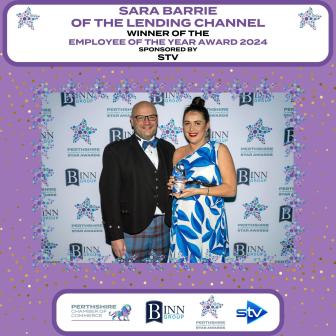


.jpg)

.png)
